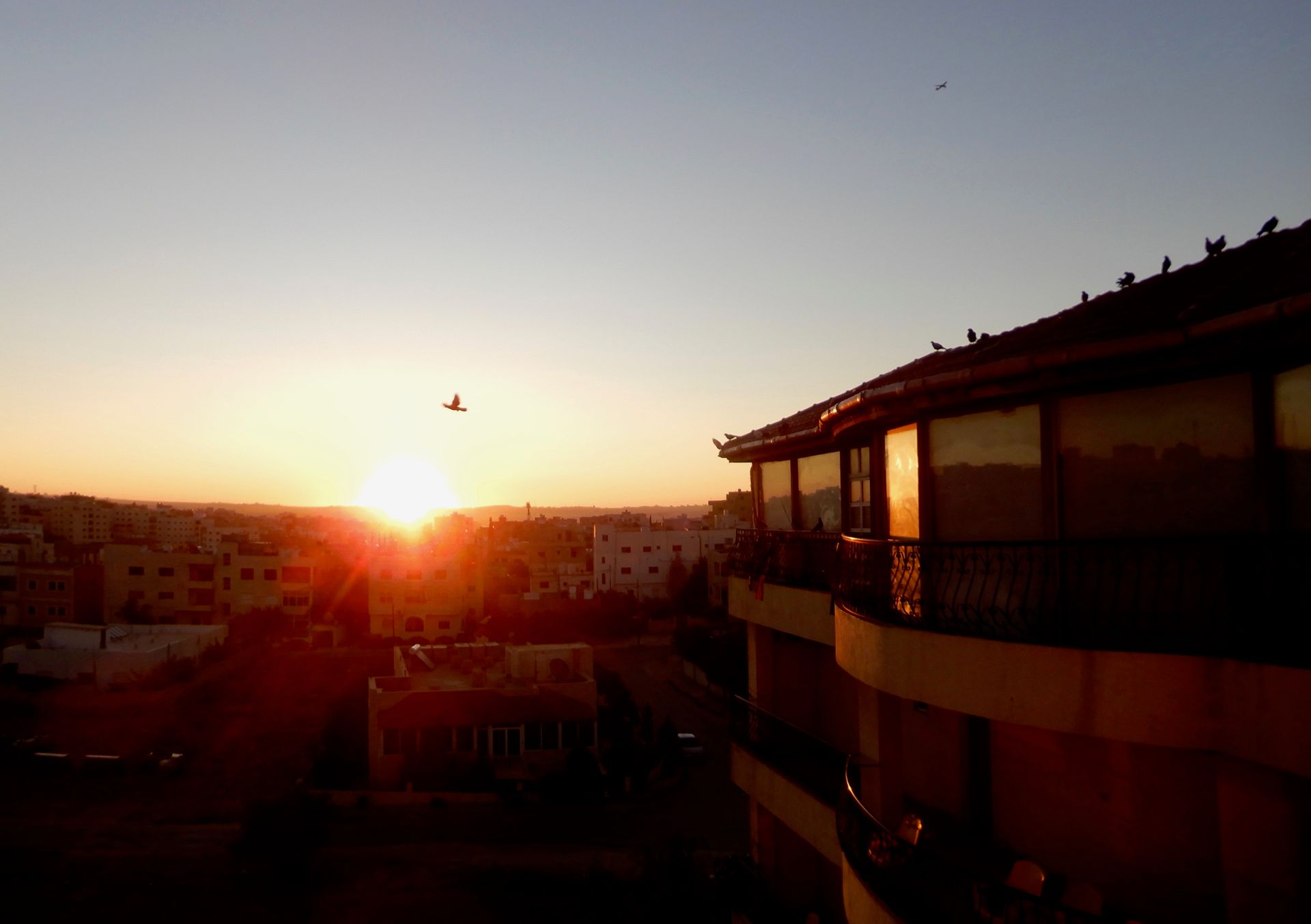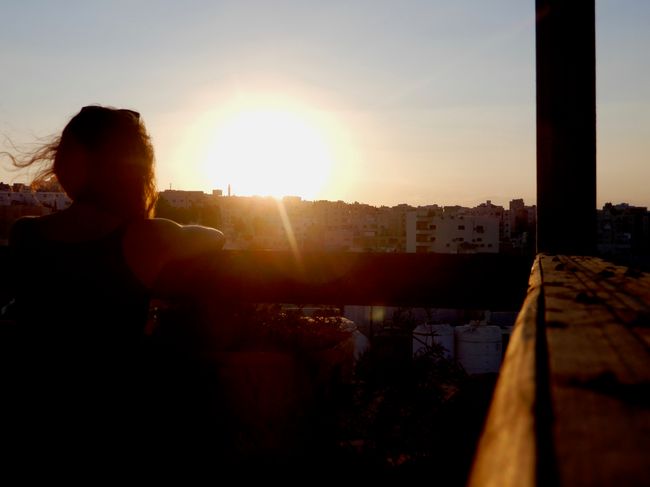Last days in Amman. For now.
Yayınlanan: 01.02.2020
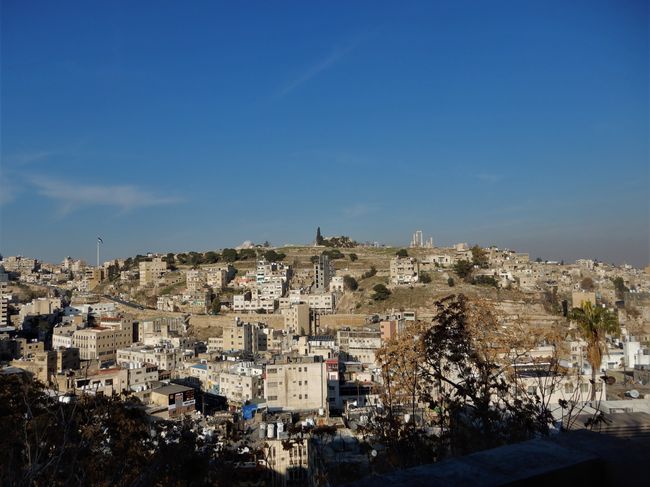
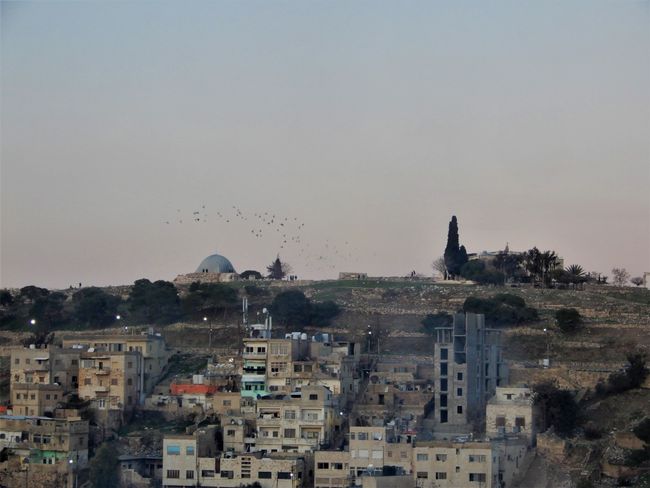
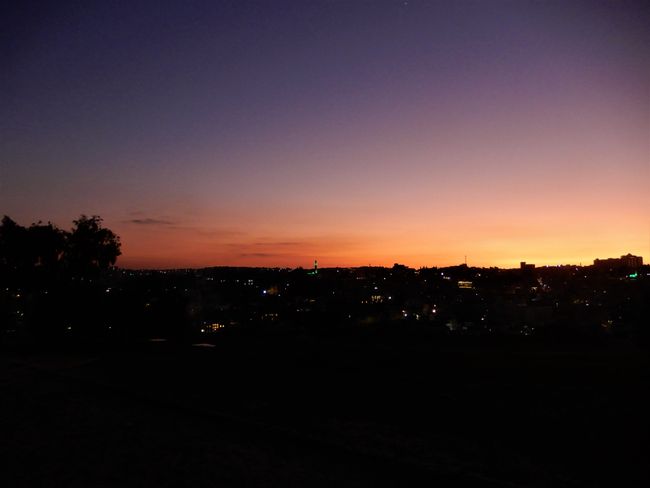
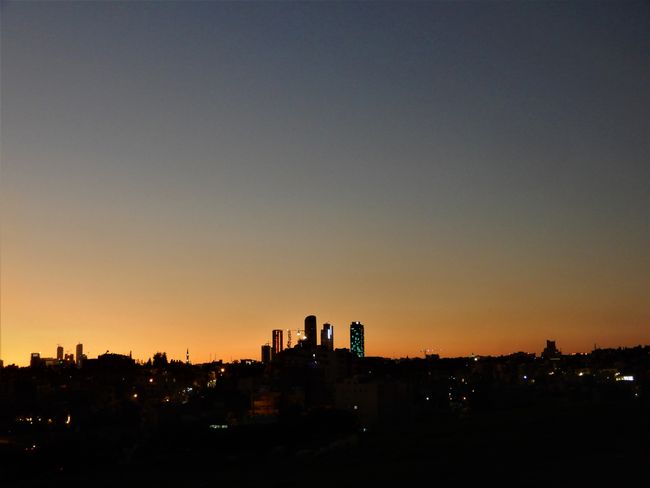
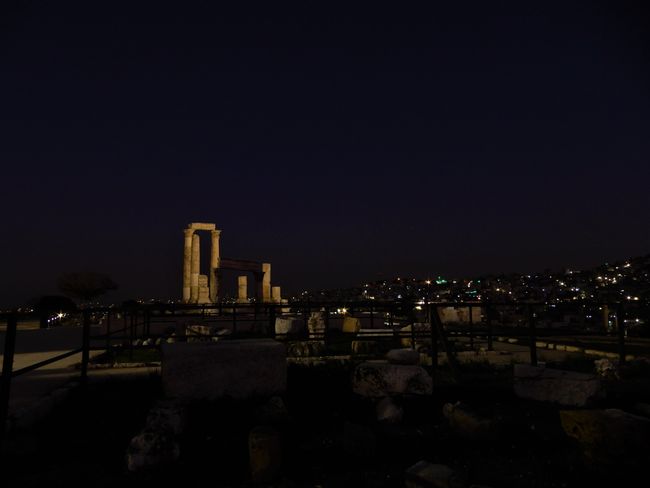
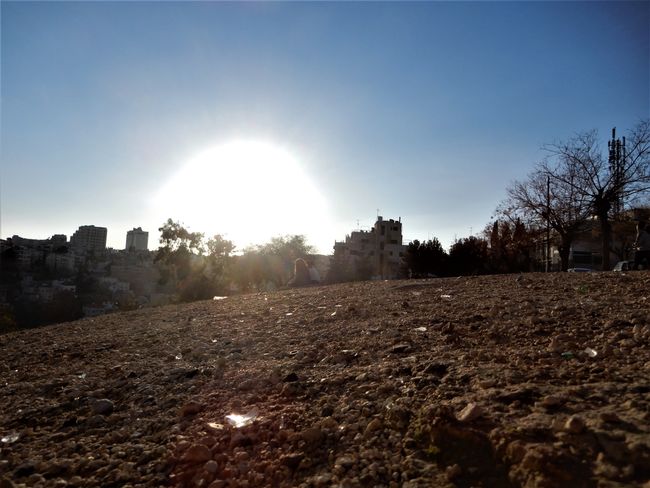
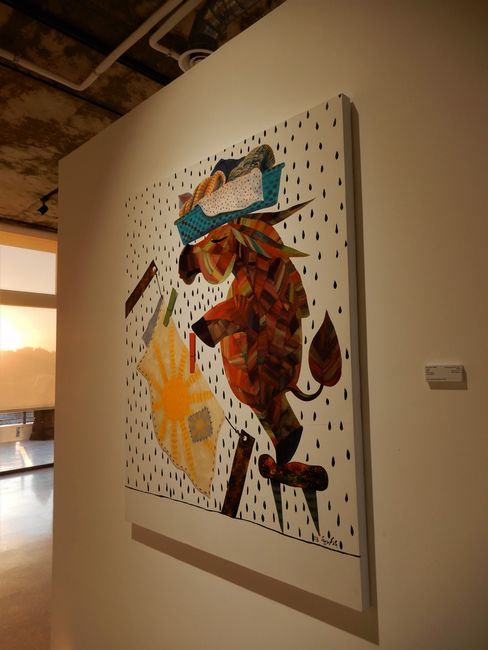
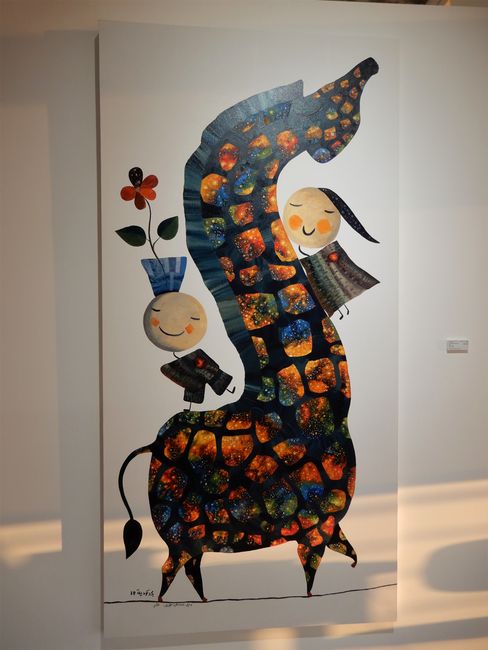
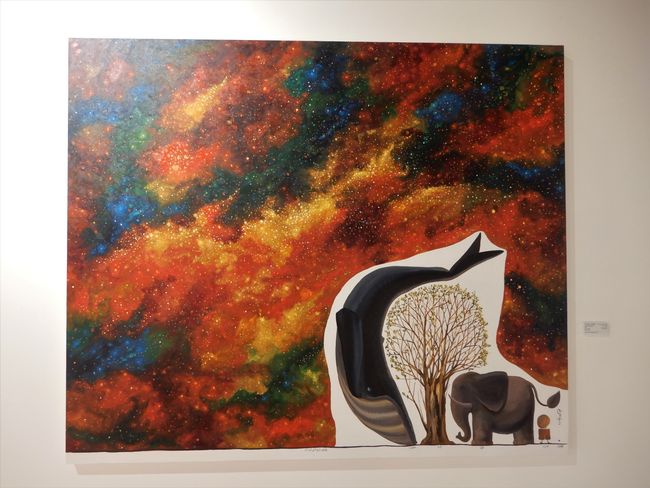
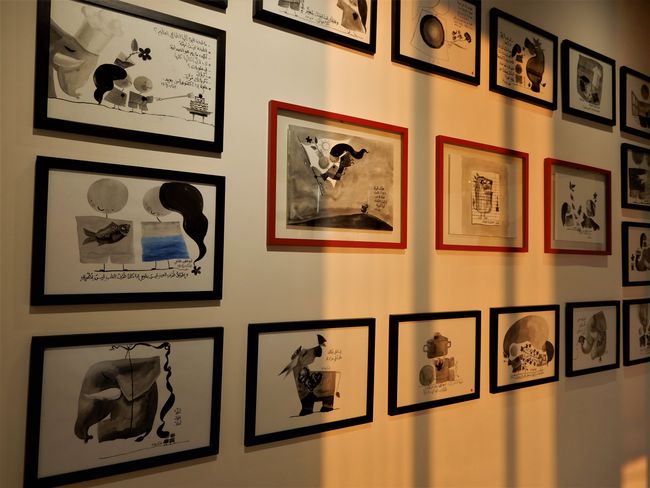
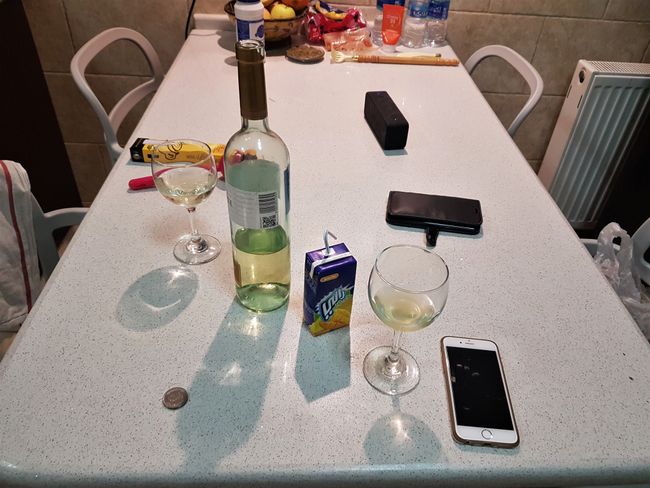
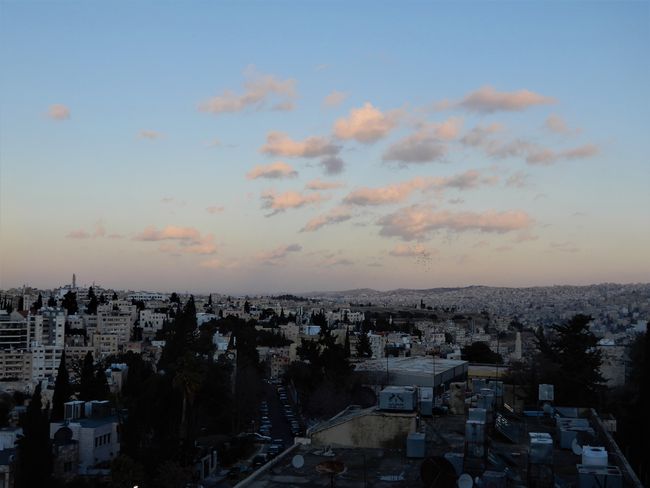
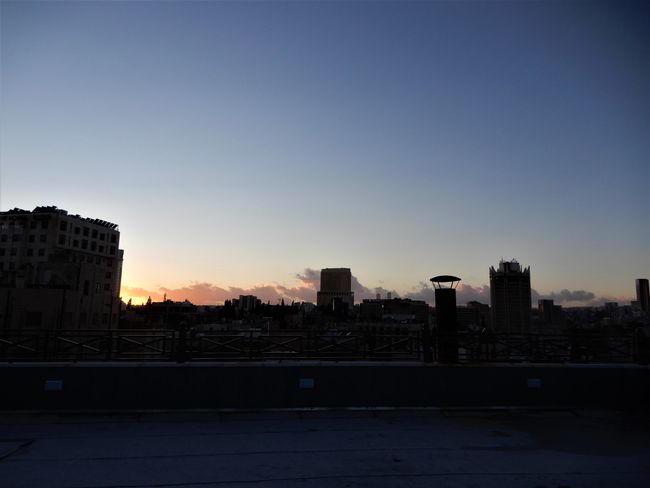
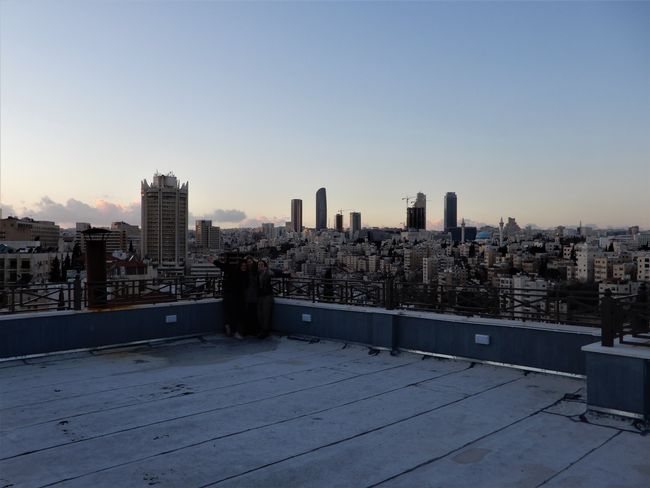
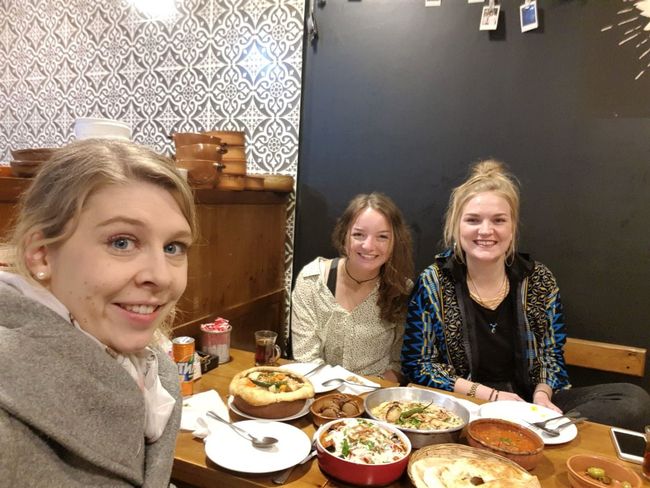
January 25th - 31st
In this post, I will briefly summarize my last week in Amman before Lea and I embark on our 3-week trip to Palestine, and then the very last week in Jordan with Caro. And it looked something like this:
Morning hours:
It's possible that sleep deprivation has accumulated over the past few weeks and months. At least I have enjoyed sleeping in almost every day in the last few days. And finally went jogging again after ages. It really did good to my body and soul. Moreover, the sun has often graciously shown itself in the past few days, so Lea, Rebecca and I could have breakfast outside in our stairwell a few times, where the morning sun shines directly on the small wooden table. This is truly a relaxed way to start each day.
Afternoon hours:
After our extensive breakfast sessions, I always spent my days outside the apartment. I visited the MMAG Foundation, where I ran into Bashar again after a long time. After the last exhibition, which ended with Mubarak's theater performance, there is now a new interesting exhibition there on "Independent publishers", which deals with the challenges that independent Arab writers face.
Of course, I also went to the well-known places Jungle Fever and Manara, where I can now chat with the waiters and relax in the rocking chair upstairs while listening to music and having a cappuccino, now that the semester is over. In Manara, there is also an art exhibition on the second floor at the moment. It showcases the paintings of Majd Kurdieh, a Syrian artist, which are not only beautiful but also have a deep meaning. They depict the two main characters Fasoon and Fasooneh, a girl and a boy, who are always portrayed with a smile. Furthermore, the two of them have no arms, even when they hug each other. The purpose is to show that no one person belongs to another person, as explained by the young woman who guides us through the exhibition. Fasoon and Fasooneh are tasked with stealing people's sadness, using a flower as a weapon. Taking away sadness is the alternative to bringing happiness, which is not always possible. Fasoon and Fasooneh are accompanied by an animal army, with each animal symbolizing different characteristics. The large black whale symbolizes sadness. Both Kurdieh's black and white drawings and his large colorful paintings are truly touching.
Evening hours:
After finally being able to devote myself to the Arabic language during the day, I meet with Rose twice for private Arabic lessons, since Sophia is traveling with a friend. After the last Arabic lesson, Lea and I also join Rose for a girls' night out at a café in Weibdeh, where we play cards while enjoying Lemon Mint and Shisha. If you look around the cafes in the evening here, it doesn't seem unusual at all. And it's really a nice alternative to having a drink at a bar. I also go to the free Zumba class at the House of Dreaming with Lea (very nice and very exhausting) and to a jam night in Weibdeh where an Arabic cover band creates a spirited atmosphere. I will also never tire of sunsets at the Citadel, where I sit up there until the very last sounds of the evening prayer have faded away and it's so dark that you can no longer see the flocks of pigeons continuously circling over Amman.
Tarabot:
I go to Tarabot for the second-to-last time, and will only come back once more with Sophia when we both return from our trips. I witness again how about 70 children are being kept busy at the same time: with competitions, theater rehearsals, computer courses, and anti-bullying discussion groups. I also watch a group of Iraqi women participating in a basket-weaving workshop. While a few women, some wearing niqabs, are still finishing their baskets, other women turn up the Iraqi music on the speakers, sway their hips, and shake their breasts. I would never believe what is happening behind closed doors here if I didn't see it with my own eyes. Dr. Amina also gives me my internship certificate and an appreciative voucher for the Amman Citymall. She also takes the opportunity to say a few encouraging words to me. She tells me not to forget that life makes the plans, not us humans. No one can know where we will be in the future, she says. And I believe she is right.
Summer School People:
In the last few days before Rebecca says goodbye and goes back to Germany, Bara’a comes to visit us one more time. I have only seen her a few times since her engagement party. And now it's almost time: she will get married on March 1st. Unfortunately, I will just barely miss her big day. Her life will change fundamentally. For the first time in her life, she will not be living at home but with her Ahmed. She already has her wedding dress. She will look pompous. That's for sure.
We also meet Adib. We bid him farewell to Syria before Christmas, where he went to his family full of hopes and visions. Now he looks tired. And disillusioned. The positive thing, he says: you can live safely in Damascus. Idlib in northern Syria, where the war is still raging, is far from the capital. But life in Damascus is hard. Inflation is rising daily, the economic situation is catastrophic. The people have nothing to live on. He is sure that everyone suffers from traumas. While everyone else is looking for the smallest chance to leave Syria, Adib is now going back to Syria. And he feels a little lost, caught in the middle. However, Jordan is also not a long-term alternative for him, as he has almost no future prospects there - as a Syrian, you don't get a work permit in Jordan. But as a husband and father of two young children, he has a special responsibility. I can see how all of this weighs heavily on his shoulders. And all I can do is hope that somehow everything will turn out for the better.
The last hours in our apartment:
We have to leave our apartment by February 1st - Rebecca will say goodbye and go back to Germany, and Lea and I will go to Palestine. So, on our second-to-last night, we stay up until 3 am, listening to motivating music and finishing with the last bottle of wine to rearrange everything as it was in the beginning when we moved in. We still remember well how in our first night here, we thoughtlessly placed furniture and decorative items from all corners of the apartment as it suited us best. We don't remember exactly what it looked like before we started rearranging the furniture.
We feel relieved when Joud, our landlady, comes by the next day, approves everything and takes over the apartment. It still feels strange to soon no longer be here. Lea, Rebecca, and I go to our rooftop terrace one last time, from where we admire Amman's beautiful evening sky. Then Rebecca and I have dinner in Weibdeh for the last time, smoke shisha at the 2nd Circle, and dance at Uncle Sam's Pub. The days in Amman are now numbered.
Cevap (1)
Hannah
بتمنالك رحلة سعيدة و بتنمى انك تكوني انبسطي كتير بأيامك الأخيرة بالاردن. ديري بالك عحالك حبيبتي.